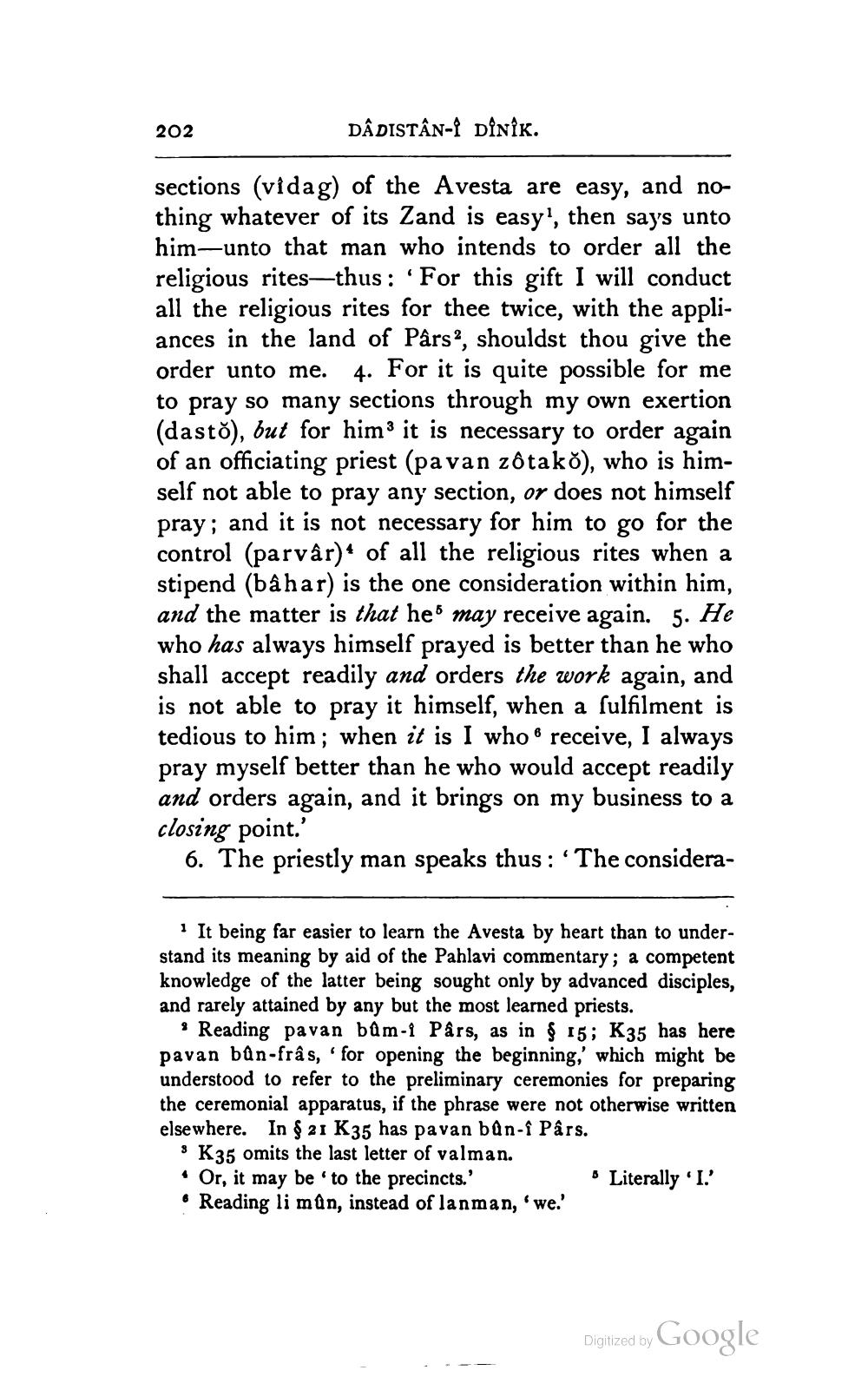________________
202
DÂDISTÂN-I DÎNIK.
sections (vidag) of the Avesta are easy, and nothing whatever of its Zand is easy', then says unto him-unto that man who intends to order all the religious rites—thus : 'For this gift I will conduct all the religious rites for thee twice, with the appliances in the land of Pârs, shouldst thou give the order unto me. 4. For it is quite possible for me to pray so many sections through my own exertion (dasto), but for him it is necessary to order again of an officiating priest (pavan zôtako), who is himself not able to pray any section, or does not himself pray; and it is not necessary for him to go for the control (parvâr)* of all the religious rites when a stipend (bâ har) is the one consideration within him, and the matter is that he may receive again. 5. He who has always himself prayed is better than he who shall accept readily and orders the work again, and is not able to pray it himself, when a sulfilment is tedious to him; when it is I who receive, I always pray myself better than he who would accept readily and orders again, and it brings on my business to a closing point.
6. The priestly man speaks thus: ‘The considera
! It being far easier to learn the Avesta by heart than to understand its meaning by aid of the Pahlavi commentary; a competent knowledge of the latter being sought only by advanced disciples, and rarely attained by any but the most learned priests.
Reading pavan bûm-1 Pârs, as in $ 15; K35 has here pavan bûn-frâs, 'for opening the beginning,' which might be understood to refer to the preliminary ceremonies for preparing the ceremonial apparatus, if the phrase were not otherwise written elsewhere. In $ 21 K35 has pavan bûn-I Pârs.
8 K35 omits the last letter of valman. • Or, it may be to the precincts.'
Literally I.' * Reading li mûn, instead of lanman, .we.'
Digitized by Google




